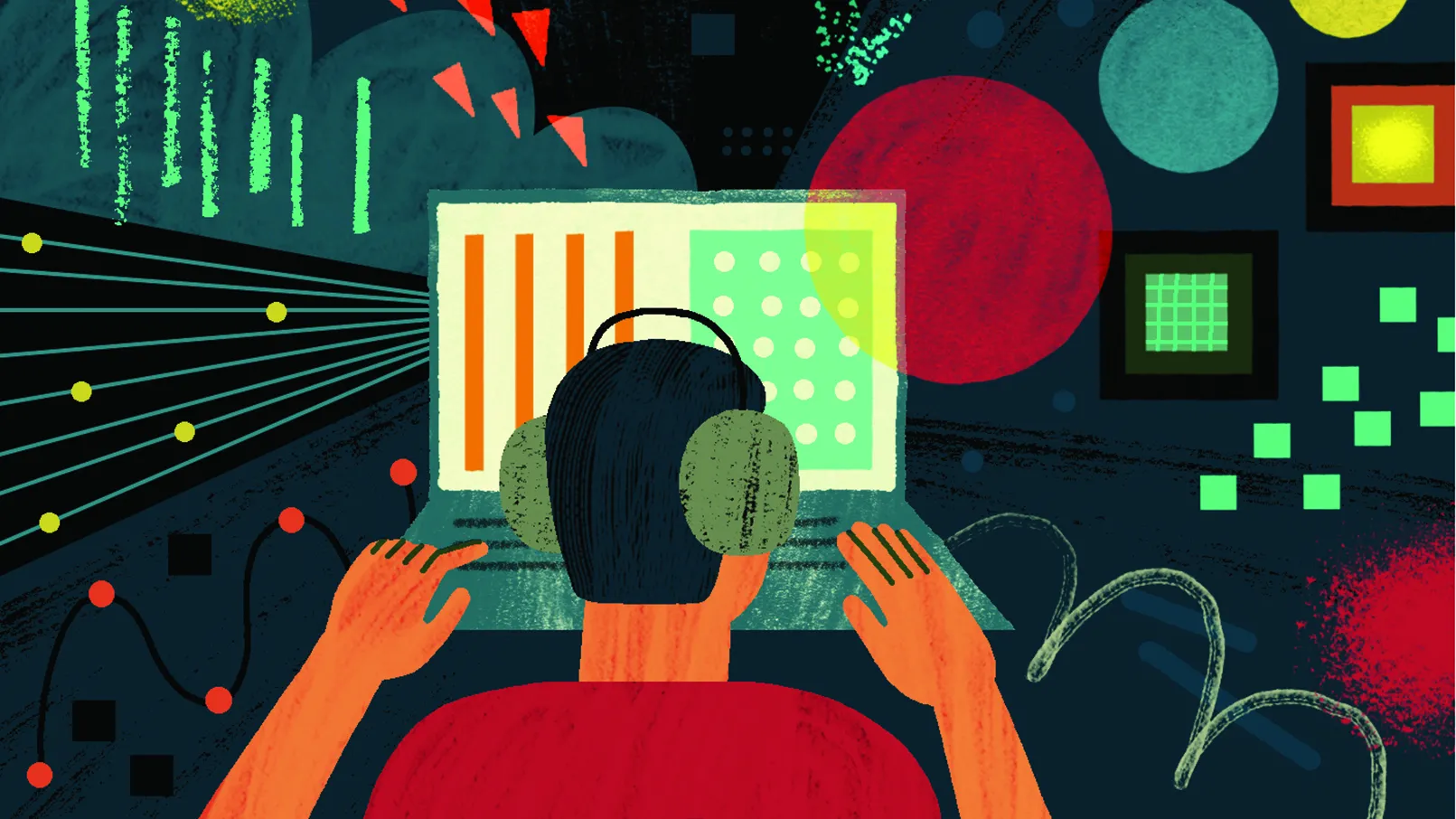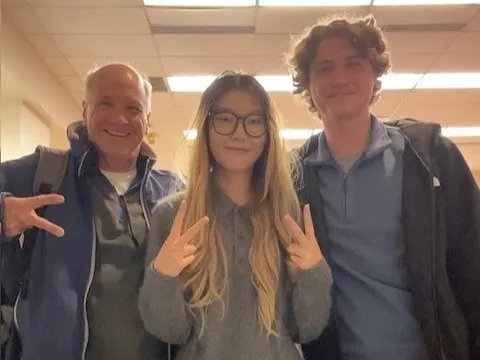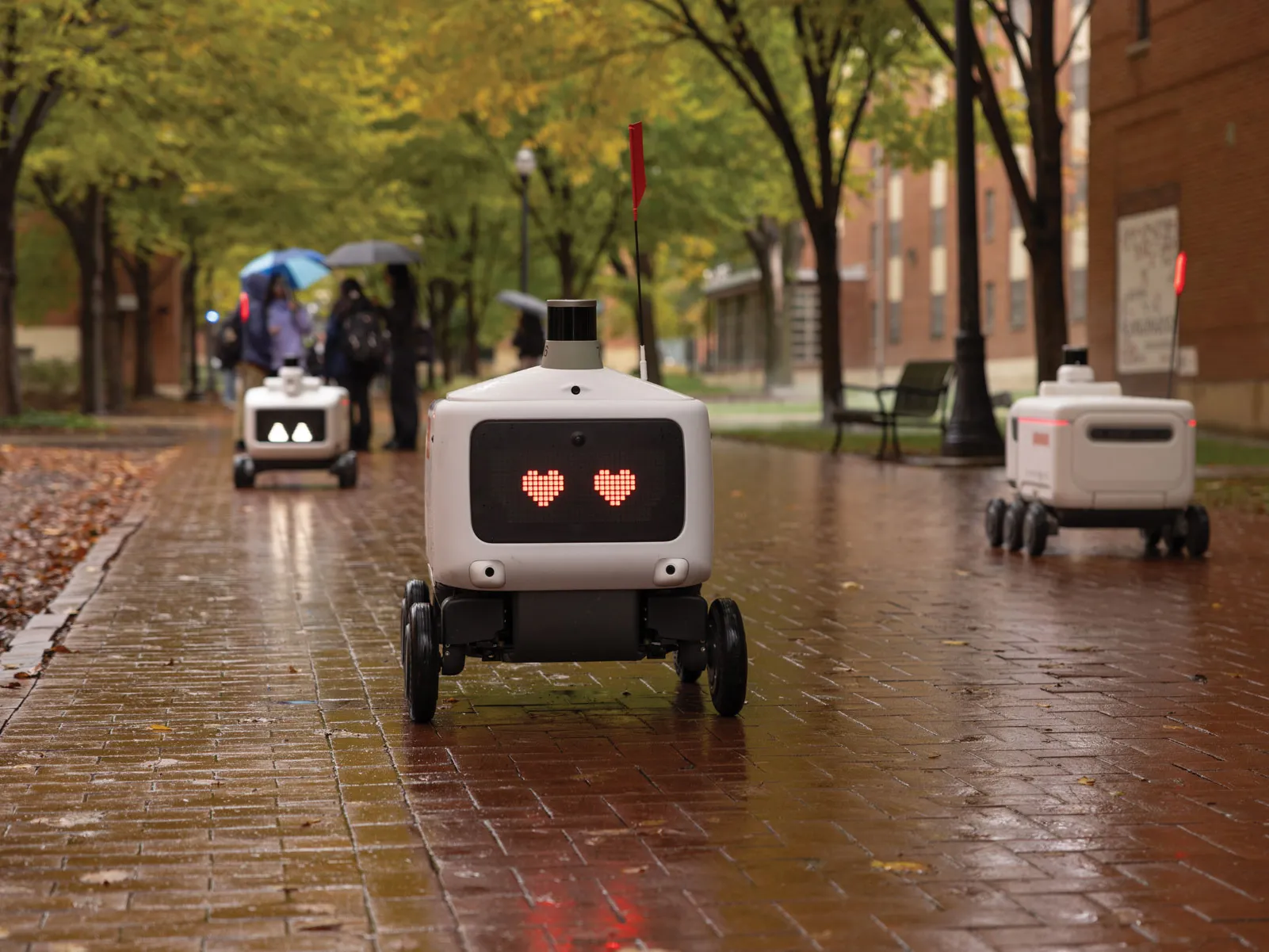A new course helps students decode generative AI
The class is part of a university-wide push to embed AI education into every student’s experience by 2029.

(Illustration by Dante Terzigni)
When Monique Ross talks about generative AI, she likes to compare it to a sophisticated graphing calculator. Sure, anyone can use a TI-92, but they won’t discover its full potential (or even a portion of its potential) unless they receive some guidance. “They’re only going to multiply, divide, add and subtract,” says Ross, associate professor of computer science and engineering.
Ross’ new class, ENGR2194: Unlocking Generative AI, is helping Ohio State undergraduates avoid that problem with AI. The course aims to demystify the technology, answering some of the questions surrounding it while also exploring its strengths, weaknesses, best uses and real-world case studies and applications. “It’s become so integral to our lives, yet we know so little about it,” Ross says.
The three-credit elective, which debuted this semester, is part of the university’s AI Fluency initiative, an ambitious program that aims to embed AI education into Ohio State’s curriculum and ensure that every student graduates with AI proficiency by 2029. The initiative is a top priority of the Education for Citizenship 2035 strategic plan, which President Walter “Ted” Carter Jr. is developing.
Ross, the director of the Center for Computing Education, began to develop the AI course about a year ago. Open to all majors, the class will introduce students to generative AI—computer programs like ChatGPT that can learn and create new content—explore ethical issues around the technology and offer best practices for what’s called “prompt engineering,” or the art of interacting with AI models.
Ohio State leaders hope that by the end of the course, students will be equipped with the skills to use generative AI in their own projects and understand its broader implications. Ross says it’s a disservice to society to remain ignorant of basic AI knowledge as the technology grows more ubiquitous every day. “Even a shallow understanding of some of the things that we use and how we use them would make us a better society,” she says.



